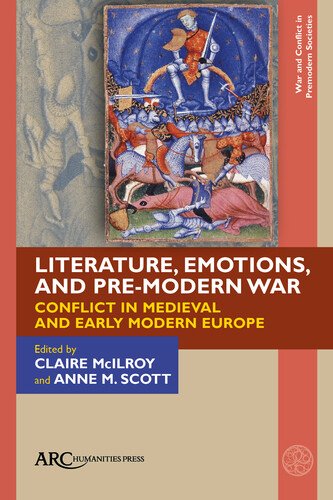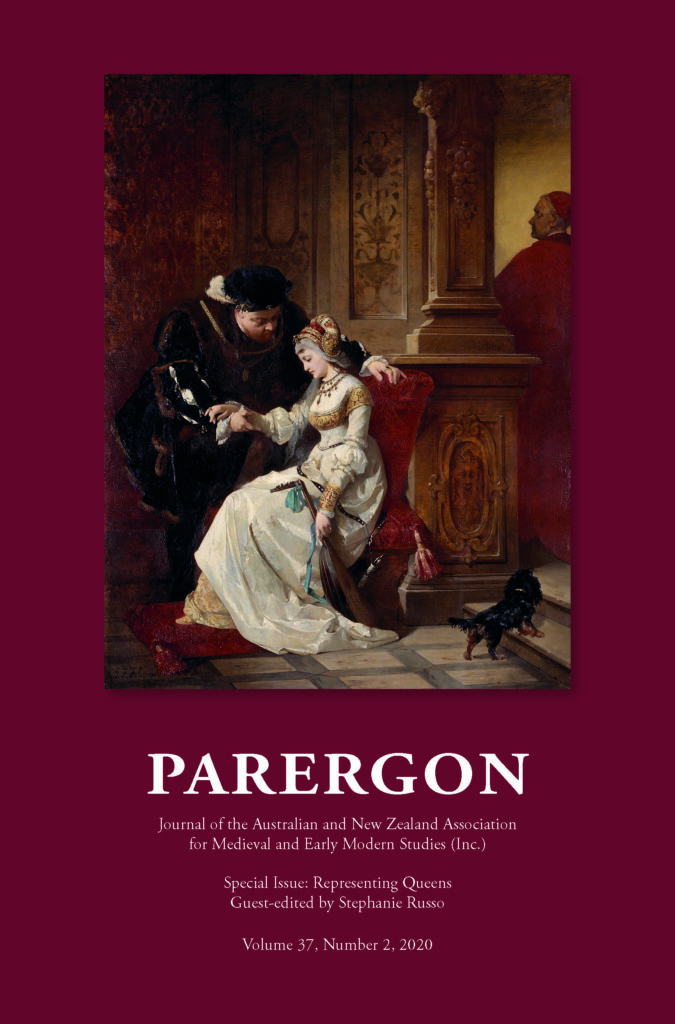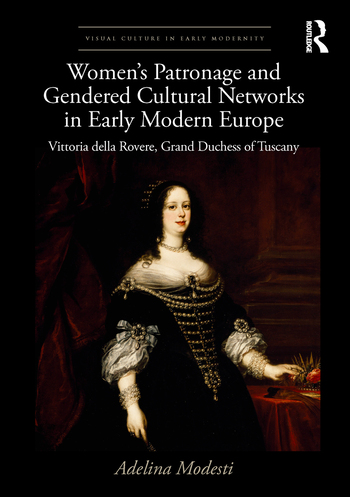Call for Submissions: Metropolitan Museum Journal
The Editorial Board of the peer-reviewed Metropolitan Museum Journal invites submissions of original research on works of art in the Museum’s collection.
The Journal publishes Articles and Research Notes. All texts must take works of art in the collection as the point of departure. Articles contribute extensive and thoroughly argued scholarship, whereas research notes are often smaller in scope, focusing on a specific aspect of new research or presenting a significant finding from technical analysis. The maximum length for articles is 8,000 words (including endnotes) and 10–12 images, and for research notes 4,000 words with 4–6 images.
The process of peer review is double-anonymous. Manuscripts are reviewed by the Journal Editorial Board, composed of members of the curatorial, conservation, and scientific departments, as well as external scholars.
Articles and Research Notes in the Journal appear both in print and online, and are accessible via MetPublications and the Journal’s home page on the University of Chicago Press site.
The deadline for submissions for Volume 58 (2023) is September 15, 2022.
Submission guidelines: www.journals.uchicago.edu/journals/met/instruct
Please send materials to: journalsubmissions@metmuseum.org
Inspiration from the Collection: www.metmuseum.org/art/collection
View the Journal: http://www.journals.uchicago.edu/loi/met
Category Archives: publication
Book Launch – The Legacy of Gildas: Constructions of Authority in the Early Medieval West
Join us for the launch of Dr Stephen Joyce’s monograph The Legacy of Gildas: Constructions of Authority in the Early Medieval West!
About this event
The Centre for Medieval & Renaissance Studies is pleased to be hosting the launch of Dr Stephen Joyce’s monograph The Legacy of Gildas: Constructions of Authority in the Early Medieval West (Boydell, 2022), a ‘provocative new investigation into the shadowy figure of Gildas, his influence and representation’.
The launch will feature comments from Emeritus Prof. Constant Mews (Monash) and Dr Darius Von Güttner Sporzynski (University of Melbourne).
The book is available for purchase from the publisher here: https://boydellandbrewer.com/9781783276721/the-legacy-of-gildas/
The event is free and can be registered for here
One month left to submit to Maddern, Crawford, and Parergon Publication Prizes!
Philippa Maddern ECR Publication Prize
Philippa Maddern (1952–2014) was Professor of History at The University of Western Australia, Director of the ARC Centre of Excellence for the History of Emotions, an ANZAMEMS stalwart, and an active member of the Association from its inception. Philippa contributed enormously to the development of medieval and early modern studies, both in Australia and globally. She gave great service as an office bearer of ANZAMEMS, serving in a range of capacities on the committee including many years as its Treasurer. Philippa was a great champion of researchers embarking on academic careers and ANZAMEMS is proud to establish a Publication Prize for Early Career Researchers in her honour.
The Philippa Maddern Publication Prize will be offered biennially, with the submission and adjudication process timed so that the announcement of the winner can be made at an ANZAMEMS Biennial International Conference. The Prize will be offered in 2021, with the winner announced at the ANZAMEMS conference to be held in Perth, Australia, in mid-2022 (date TBC).
In 2021 the Philippa Maddern ECR Publication Prize will be awarded to an Early Career Researcher (ECR) for the best article-length scholarly work in any discipline/topic falling within the scope of medieval and early modern studies, published within the below date range.
Articles published between 1 January 2018 to 30 November 2021 are eligible. Early online publication of articles will also be considered. The article must have been published online before the above cut-off date.
Entry for the 2021 Prize opened on 1 June 2021 and closes on 30 November 2021.
More details and full eligibility requirements are available here.
To apply for the Philippa Maddern ECR Publication Prize, please fill out the application form, which can be downloaded here.
Patricia Crawford Postgraduate Publication Prize
Patricia Crawford (1941–2009) was Professor Emerita of History at The University of Western Australia. A pioneering feminist historian, she is remembered as a leading scholar of early modern England whose work brought new depth to the study of women’s lives and thereby transformed understanding of the period. Trish was internationally recognised and served The University of Western Australia, her discipline, and ANZAMEMS with distinction. An active member of ANZAMEMS and the Parergon Editorial Committee, Trish was a scholar passionate about collaboration, and a mentor of extraordinary generosity, and ANZAMEMS is delighted to establish a Publication Prize for postgraduate students in her honour.
The Prize will be offered biennially, with the submission and adjudication process timed so that the announcement of the winner can be made at an ANZAMEMS Biennial International Conference. The Prize will be offered in 2021, with the winner announced at the ANZAMEMS conference to be held in Perth, Australia, in mid-2022 (date TBC).
The Patricia Crawford Postgraduate Publication Prize is awarded to a postgraduate student for the best article-length scholarly work in any discipline/topic falling within the scope of medieval and early modern studies, published within the within the below date range.
Articles published between 1 January 2018 to 30 November 2021 are eligible. Early online publication of articles will also be considered. The article must have been published online before the above cut-off date.
Entry for the 2021 Prize opened on 1 June 2021 and closes on 30 November 2021.
More details and full eligibility requirements are available here.
To apply for the Patricia Crawford Postgraduate Publication Prize, please fill out the application form, which can be downloaded here.
Parergon Prize
The Prize will be offered biennially, with the submission and adjudication process timed so that the announcement of the winner can be made at an ANZAMEMS Biennial International Conference.
The Prize will be offered in 2021, with the winner announced at the ANZAMEMS conference to be held in Perth, Australia, in mid-2022 (date TBC).
In 2021 the Parergon Prize will be awarded to an emerging scholar for the best article-length scholarly work accepted to be published in Parergon during the three calendar years previous to the year in which the prize is offered. Eligible articles should have been accepted to be published in the period 2018–2020.
Entry for the 2021 Prize will open on 1 June 2021 and close on 30 November 2021.
More details and full eligibility requirements are available here.
To apply for the Parergon Prize, please fill out the application form, which can be downloaded here.
Please direct all queries regarding all Prizes to: info@anzamems.org
New member publication: Literature, Emotions, and Pre-Modern War: Conflict in Medieval and Early Modern Europe

Congratulations to ANZAMEMS members Claire McIlroy and Anne M. Scott on the publication of their new edited collection, Literature, Emotions, and Pre-Modern War: Conflict in Medieval and Early Modern Europe (Arc Humanities Press, 2021).
This collection assembles work by some of the foremost English-speaking scholars of pre-modern thought and culture and is the fruit of the Australian Research Council’s ground-breaking Centre of Excellence for the History of Emotion. The impact of war, a human activity that is both public and politically charged, is examined as it affects private human lives caught up in public and political situations. The essays, many of them influenced by the burgeoning field of study in the history of emotions, examine the often unconsidered effects of war—on the individual and on the commune—as revealed in the study of well-known texts such as Beowulf, Piers Plowman, Malory’s Le Morte Darthur, and Chaucer’s Troilus and Criseyde, as well as other lesser-known works that mirror the concerns of the society in which they were conceived. These latter range from the twelfth-century chansons of the Crusades, through the fifteenth-century French and English political works of Alain Chartier, to the twentieth-century anti-war satirical films of Mario Monicelli.
Please find attached below a promotional flyer for 50% off the purchase price for ANZAMEMS members.
ANZAMEMS members wishing to promote their research through the ANZAMEMS newsletter are invited to email the editor, Lisa Rolston.
CFP Old English Poetry and its Legacy
John D. Niles, Professor of Humanities Emeritus at the University of Wisconsin, Madison, and Professor of English Emeritus at the University of California, Berkeley, has long been a major voice in Old English studies. This special issue of the international, peer-reviewed, open-access journal Humanities, together with a resultant book, will celebrate his achievements while promoting innovative work in the field.
The collection will focus on the legacy of Old English poetry broadly conceived and will include, for example, studies of particular poems, themes, or verse passages; of the translation or reception history of particular texts; of linguistic features of the poetry and their subsequent influence; of current historical and archaeological studies and how they illuminate the poetry or vice versa; of Old English poetry’s influence on various fields such as music or art; and of how an understanding of Old English prose or medieval Latin literature enriches appreciation of the poetry.
We welcome contributions that address fundamental issues in the Humanities from any meaningful perspective, combining past and present concerns in order to blaze a path toward the future. Interdisciplinary approaches are particularly welcome. All submissions will be critically reviewed by peers, aiming for the highest possible scholarly level. Being an online journal, the published papers will reach their desired audiences faster, more reliably, and much more easily than traditional print versions, while upholding the same, if not even higher, scholarly standards.
The deadline for submissions is 31 December 2021. For more information see the attached flyer.
Parergon 37.2 now available

Parergon 37.2 Special Issue, Representing Queens, guest-edited by Stephanie Russo, has now been published and is available on Project Muse.
Members should receive hard copies of the issue in the coming weeks, and it will be available on other online platforms shortly.
CFP Piecing together the past: fragments of medieval and early modern books in Australia and New Zealand
Piecing together the past: fragments of medieval and early modern books in Australia and New Zealand
Editors: Anna Welch (State Library Victoria) and Nicholas Sparks (The University of Sydney)
In the medieval and early modern period, old books were routinely cut up and reused to make new books: the materials involved – whether prepared animal skin or paper – were simply too valuable to discard. Manuscript and printed leaves from dismembered books were reused in the bindings of newer books, either as structural support, fly leaves, or as the outer surface of the binding itself. Parchment could be scraped back to create a new but never entirely blank writing surface. In both types of reuse, layers of palimpsest texts and provenance stories offer scholars a chance to recover otherwise unknown voices and histories. Conceptually, fragments also support new approaches to the interrelated histories of reading and authorship, and to considerations of the reception of books as material objects, both in the past and in the modern era.
The pragmatism of this practice of recycling combined with modern advances in technology and digital connectivity – and the scholarly impetus to study unique physical cultural material in the age of mass digitization – have given rise to a new field of study: fragmentology. Digital humanities initiatives have facilitated entirely new ways to reconstruct fragmentary elements of our medieval and early modern past, and have shown again the potency of collaborative, multidisciplinary research. Fragments present challenges and opportunities for study precisely because of their liminal nature: they sit between manuscript culture and the era of print, and challenge the delineation between traditional the academic categories of palaeography and codicology, conservation, the history of binding, art history, bibliography, provenance research and the history of the book trade.
We are seeking proposals for a collected volume focused on medieval and early modern fragments (both in manuscript and print) in Australian and New Zealand collections: the first volume of its kind for the region. Abstracts are welcomed for scholarly articles of up to 8000 words (including notes) that present new research on any aspect pertaining to fragments. Papers that explore fragments via novel, interesting approaches, such as book history, bibliography, palaeography and codicology, art history, literary history, digital humanities, and curatorial practice, are especially welcomed.
Please send us your expressions of interest, including a title, 250-word abstract, and short biography, by Tuesday 26 January 2021. We will be seeking a contract with an academic press that guarantees a fully refereed process for publication. We will confirm acceptance of your abstract before making our proposal to relevant presses by 28 February 2021, with a view to a publication going to print in 2022.
For more information please see the below flyer.
New Chaucer Studies: Pedagogy and Profession Launch
The editors of New Chaucer Studies: Pedagogy and Profession are delighted to announce the launch of our new, on-line, open-access journal: https://escholarship.org/uc/ncs_pedagogyandprofession.
Please join us in raising a glass to toast the launch of the journal and to celebrate the global community of Chaucerians and the Chaucer-interested on FRIDAY, DECEMBER 4 AT 1 PM EST/ 6 PM GMT.* Please e-mail us at ncs.pedagogyandprofession@gmail.com in order to receive the Zoom link.
*Find the correct time for your location here: https://www.timeanddate.com/worldclock/converter.html.
John Bunyan Society publications
The International John Bunyan Society would like to promote the following recent publications by its members:
Mary Franklin and Hannah Burton, She Being Dead Yet Speaketh: The Franklin Family Papers (University of Chicago Press, 2020)
Elizabeth Clarke and Robert W. Daniel (ed.), People and piety: Protestant devotional identities in early modern England (Manchester University Press, 2020)
New member publication: Women’s Patronage and Gendered Cultural Networks in Early Modern Europe

Congratulations to ANZAMEMS member Adelina Modesti on the publication of her new book, Women’s Patronage and Gendered Cultural Networks in Early Modern Europe. Vittoria della Rovere, Grand Duchess of Tuscany (Routledge, 2020).
This book examines the sociocultural networks between the courts of early modern Italy and Europe, focusing on the Florentine Medici court, and the cultural patronage and international gendered networks developed by the Grand Duchess of Tuscany, Vittoria della Rovere.
Adelina Modesti uses Grand Duchess Vittoria as an exemplar of pan-European ‘matronage’ and proposes a new matrilineal model of patronage in the early modern period, one in which women become not only the mediators but also the architects of public taste and the transmitters of cultural capital. The book will be the first comprehensive monographic study of this important cultural figure.
This study will be of interest to scholars working in art history, gender studies, Renaissance studies and seventeenth-century Italy.
Please find attached below a promotional flyer which includes a discount code for 20% off the purchase price.
ANZAMEMS members wishing to promote their research through the ANZAMEMS newsletter are invited to email the editor, Lisa Rolston.
